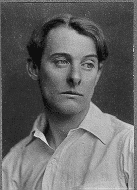 |
Numerous books and articles have been written on Oscar Wilde, reflecting on his life and works. He was a celebrity in his own time and his influence on the world's literature can't be denied. Oscar
Wilde's dramatic portrayals of the human condition came
during the
Victorian Era of the late 19th century. At a time that was considered a height of prosperity in London Wilde wrote many short stories,
plays and poems that continue to inspire millions around the world and that focused on human nature, inequalities, cruelty.
 |
| William Robert Wilde (1815 - 1876) |
But let's start at the beginning. His father was a respected and well-known person in Dublin. By
the time William Wilde was 28, he had graduated as
a doctor, completed a voyage to Madeira, Teneriffe, North Africa and
the Middle East, studied at Moorfields Eye Hospital in London,
written two books and been appointed medical advisor to the Irish
Census of 1841. When the medical statistics were published two years
later they contained data which had not been collected in any other
country at the time, and as a result, William became the Assistant
Commissioner to the 1851 Census. He held the same position for the
two succeeding Censuses and, in 1864, he was knighted for his work on
them. When William opened a Dublin practice specializing in ear and
eye diseases, he felt he should make some provision for the free
treatment of the city's poor population. In 1844, he founded St.
Mark's Ophthalmic Hospital, built entirely at his own expense.
Before
he married, William fathered three children. Henry Wilson was born in
1838, Emily in 1847 and Mary in 1849. He
provided financial support for all of them, which was quite unusal at those times and one can consider him quite generous... He paid for Henry's
education and medical studies, eventually hiring him into St. Mark's
Hospital as an assistant. Mary and Emily, who were raised by
William's brother, both died in a fire at the ages of 22 and 24.
 | ||
| Lady Jane Francesca Wilde (Jane Elgee, 1821-1896) | Speranza |
Oscar's
mother, Jane Francesca Elgee, was a writer and independist. She first gained attention in 1846 when she
began writing revolutionary poems under the pseudonym "Speranza"
for a weekly Irish newspaper, The Nation. In 1848, as the country's
famine worsened and the Year of Revolution took hold of Europe, the
newspaper offices were raided and had to close. Jane, who was also a
gifted linguist with working knowledge of the major European
languages, went on to translate Wilhelm Meinhold's gothic horror
novel “Sidonia the Sorceress.” Oscar would later read the
translation with relish, and draw on it for the darker elements of
his own work.
Jane's
first child, William "Willie" Charles Kingsbury, was born
on September 26, 1852 and her second, Oscar Fingal O'Flahertie, on
October 16, 1854. The daughter she had longed for, Isola Emily
Francesca, was delivered on April 2, 1857. Ten years later, however,
Emily died from a sudden fever. Oscar was deeply affected by the
loss of his sister, and for his lifetime he carried a lock of her
hair sealed in a decorated envelope.
Willie and Oscar attended the Portora Royal School at Enniskillen, where Oscar excelled at studying the classics, taking top prize his last two years, and also earning a second prize in drawing. In 1871, Oscar was awarded the Royal School Scholarship to attend Trinity College in Dublin. Again, he did particularly well in his classics courses, placing first in his examinations in 1872 and earning the highest honor the college could bestow on an undergraduate, a Foundation Scholarship. In 1874, Oscar crowned his successes at Trinity with two final achievements. He won the college's Berkeley Gold Medal for Greek and was awarded a Demyship scholarship to Magdalen College in Oxford.
Oscar's
father died on April 19, 1876, leaving the family financially
strapped. Henry, William's eldest son, paid the mortgage on the
family's house and supported them until his sudden death in 1877.
Meanwhile, Oscar continued to do well at Oxford. He was awarded the
Newdigate prize for his poem, “Ravenna,” and a First Class in
both his "Mods" and "Greats" by his examiners.
After graduation, Oscar moved to London to live with his friend Frank
Miles, a popular high society portrait painter. In 1881, he published
his first collection of poetry. “Poems” received mixed reviews by
critics, but helped to move Oscar's writing career along.
In
December 1881, Oscar sailed for New York to travel across the United
States and deliver a series of lectures on aesthetics. The 50-lecture
tour was originally scheduled to last four months, but stretched to
nearly a year, with over 140 lectures given in 260 days. In between
lectures he made time to meet with Henry Longfellow, Oliver Wendell
Holmes and Walt Whitman. He also arranged for his play, “Vera,”
to be staged in New York the following year. When he returned from
America, Oscar spent three months in Paris writing a blank-verse
tragedy that had been commissioned by the actress Mary Anderson. When
he sent it to her, however, she turned it down. He then set off on a
lecture tour of Britain and Ireland.
On
May 29, 1884, Oscar married Constance Lloyd. Constance was four years
younger than Oscar and the daughter of a prominent barrister who died
when she was 16. She was well-read, spoke several European languages
and had an outspoken, independent mind. Oscar and Constance had two
sons in quick succession, Cyril in 1885 and Vyvyan in 1886.
 |
| They had two sons, Cyril (1885) and Vyvyan (1886). |
With a
family to support, Oscar accepted a job revitalizing the Woman's
World magazine, where he worked from 1887-1889. The next six years
were to become the most creative period of his life. He published two
collections of children's stories, “The Happy Prince and Other
Tales” (1888), and “The House of Pomegranates” (1892). His
first and only novel, The Picture of Dorian Gray, was published in an
American magazine in 1890 to a storm of critical protest. He expanded
the story and had it published in book form the following year. Its
implied homoerotic theme was considered very immoral by the
Victorians and played a considerable part in his later legal trials.
Oscar's first play, “Lady Windermere's Fan,” opened in February
1892. Its financial and critical success prompted him to continue to
write for the theater. His subsequent plays included “A Woman of No
Importance” (1893), “An Ideal Husband” (1895), and “The
Importance of Being Earnest” (1895). These plays were all highly
acclaimed and firmly established Oscar as a playwright.
In
the summer of 1891, Oscar met Lord Alfred 'Bosie' Douglas, the third
son of the Marquis of Queensberry. Bosie was well acquainted with
Oscar's novel “Dorian Gray” and was an undergraduate at Oxford.
They soon became lovers and were inseparable until Wilde's arrest
four years later. In April 1895, Oscar sued Bosie's father for libel
as the Marquis had accused him of homosexuality. Oscar withdrew his
case but was himself arrested and convicted of gross indecency and
sentenced to two years hard labor. Constance took the children to
Switzerland and reverted to an old family name, “Holland.”
Upon his release, Oscar wrote “The Ballad of Reading Gaol,” a response to the agony he experienced in prison. It was published shortly before Constance's death in 1898. He and Bosie reunited briefly, but Oscar mostly spent the last three years of his life wandering Europe, staying with friends and living in cheap hotels. Sadly, he was unable to rekindle his creative fires. When a recurrent ear infection became serious several years later, meningitis set in, and Oscar Wilde died on November 30, 1900.
 |
| Père Lachaise Cemetery, Paris |
Apart from the Pére Lachaise Cementary, we can find at least two other places that are dedicated to the memory of Oscar Wilde:
 | |||
| A Conversation | with Oscar Wilde, | London |
 |
| Wilde's house in Dublin, where he spent the first years of his life. Merrion Square1... |
 |
| ...and a natural-sized statue in a park in front of it. |
























Comentarios
Publicar un comentario